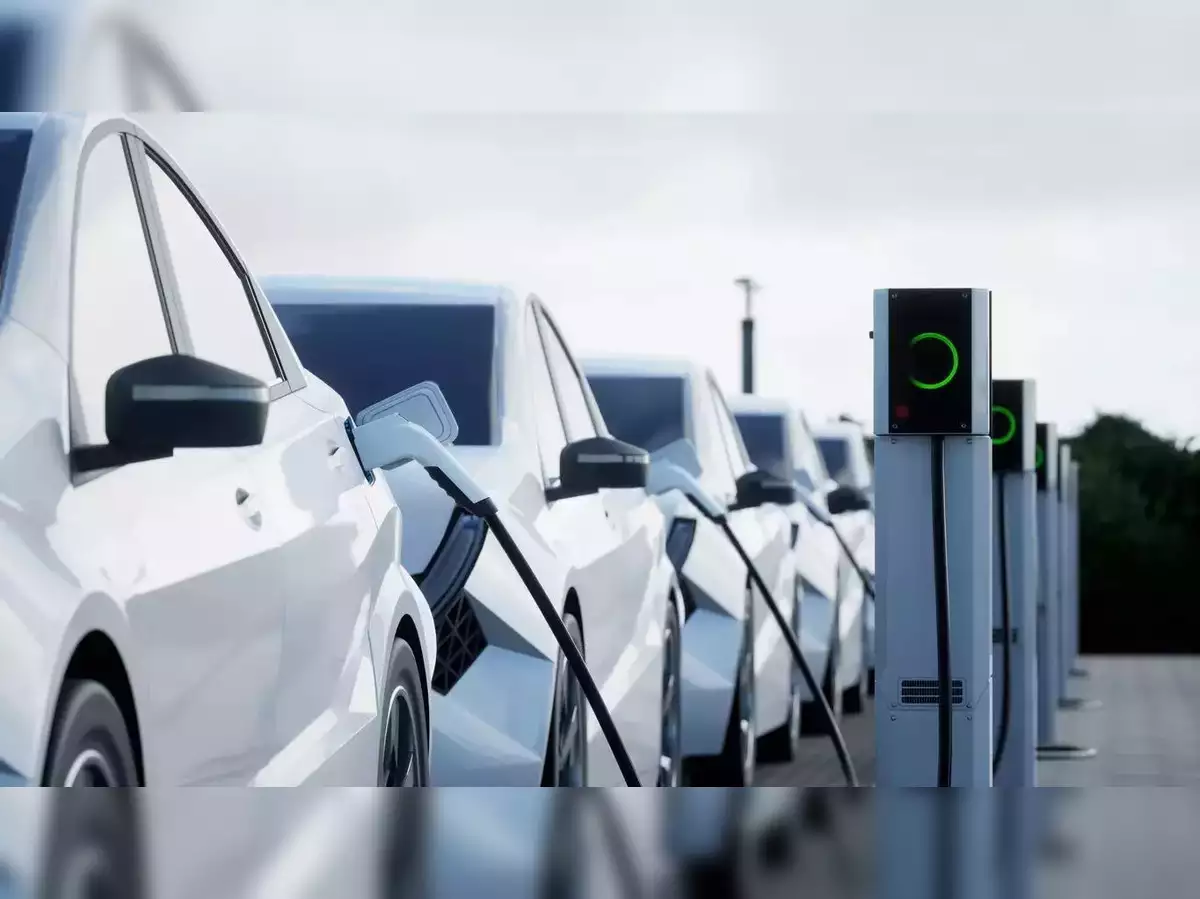Berlin, September 5, 2024 – Germany, the European powerhouse of the automotive industry, is witnessing a notable decline in new car sales, with a particularly sharp drop in the demand for electric vehicles (EVs). This downturn is stirring concerns across the industry and among policymakers as the nation navigates its economic and environmental objectives.
A Closer Look at the Numbers
Recent data from the German Automotive Industry Association (VDA) reveals a significant drop in new car registrations. In August 2024, new car sales fell by 12% compared to August 2023. Electric vehicles, which had been driving growth in the automotive sector, saw an even more pronounced decline of 18% over the past year. This reversal is striking, given the previously robust growth of the EV market in Germany.
The VDA’s figures indicate that this downturn in electric vehicle sales is not a transient fluctuation but part of a broader trend impacting the automotive market. Industry analysts are closely examining these figures to understand the underlying causes and potential long-term implications.
Economic Pressures and Consumer Behavior
The decline in new car sales can be attributed to several interrelated factors:
- Economic Instability: Germany’s economy has been under strain from rising inflation, fluctuating energy prices, and broader global economic uncertainties. This has led to reduced consumer confidence and spending power. Many Germans are choosing to delay or forego large purchases, including new vehicles, as they navigate these financial challenges.
- High Costs of Electric Vehicles: Despite recent decreases in battery prices, the overall cost of electric vehicles remains high relative to traditional combustion engine cars. The disparity is compounded by increasing interest rates on auto loans, making EVs less accessible for many potential buyers. As a result, the attractiveness of electric vehicles has waned for budget-conscious consumers.
- Policy Changes: The German government has recently scaled back subsidies and incentives for electric vehicle purchases. Originally introduced to encourage the shift towards greener vehicles, these incentives have been reduced to reallocate funds to other environmental initiatives. This change has diminished the financial appeal of EVs and contributed to the decline in sales.
- Charging Infrastructure Challenges: While Germany has made significant investments in expanding its charging infrastructure, there remain concerns about the accessibility and reliability of charging stations. These concerns are particularly pronounced in rural areas where charging options are limited, making potential buyers hesitant to commit to electric vehicles.
- Shifts in Consumer Preferences: The automotive market is seeing a shift in consumer preferences. Many buyers are opting for hybrid vehicles or sticking with traditional internal combustion engines due to their lower costs and greater availability. The evolving landscape of mobility options is influencing consumer choices and contributing to the decline in EV sales.
Industry Response and Adjustments
The decline in new car sales, especially in the electric vehicle segment, is prompting significant adjustments within the automotive industry:
- Volkswagen Group: Volkswagen has reported a 15% decrease in electric vehicle sales compared to the previous year. In response, the company is re-evaluating its production schedules and exploring ways to develop more affordable electric models. Volkswagen aims to attract a broader customer base by making EVs more financially accessible.
- BMW: BMW is shifting its focus towards hybrid and plug-in hybrid vehicles. By offering a range of electrified options, the company aims to cater to consumers who are hesitant to fully embrace electric vehicles but still seek more sustainable transportation solutions.
- Mercedes-Benz: Mercedes-Benz is investing heavily in enhancing its charging infrastructure and developing innovative technologies to improve the appeal of its electric vehicles. The company is also considering strategic partnerships to strengthen its position in the increasingly competitive EV market.
- Automotive Suppliers: Suppliers to the automotive industry are also feeling the impact of the declining EV market. Companies involved in the production of batteries, charging equipment, and other EV components are adjusting their strategies and exploring new opportunities in response to changing demand.
Government and Policy Reactions
The German government is facing pressure to address the decline in electric vehicle sales while maintaining its climate goals. Several key areas of focus are emerging:
- Policy Reforms: There is growing advocacy for the reintroduction of incentives or tax breaks for electric vehicle buyers. Many experts argue that maintaining strong support for EVs is crucial for meeting Germany’s climate targets and preserving its leadership in the global automotive industry.
- Investment in Infrastructure: Accelerating investments in charging infrastructure and energy efficiency programs is a key priority. Enhancing the accessibility and reliability of charging stations, particularly in underserved areas, could help alleviate consumer concerns and boost demand for electric vehicles.
- Support for Innovation: There is increasing support for funding research and development in battery technology and alternative fuel solutions. Investing in innovation could help reduce the cost of electric vehicles, improve their performance, and make them more appealing to a wider range of consumers.
- Consumer Education: Efforts to educate consumers about the benefits of electric vehicles and address their concerns are critical. Transparent communication about advancements in technology, cost savings, and environmental benefits can help rebuild consumer confidence and stimulate demand.
Consumer Perspectives and Market Dynamics
Consumer sentiment plays a crucial role in shaping the automotive market. Insights from German car buyers reveal a range of opinions on electric vehicles and the factors influencing their purchasing decisions:
- Cost Sensitivity: Many consumers express concerns about the high upfront costs of electric vehicles. While the long-term savings on fuel and maintenance are appealing, the initial investment remains a significant barrier for many potential buyers. Lowering the cost of EVs and providing more financing options could address this concern.
- Range Anxiety: Range anxiety, or the fear of running out of battery power, continues to be a major factor influencing consumer decisions. Although advancements in battery technology have improved range, some buyers are still hesitant due to concerns about the availability and convenience of charging stations.
- Environmental Commitment: Despite the overall decline in demand, there is still a dedicated segment of consumers who prioritize environmental considerations and are committed to transitioning to electric mobility. These buyers are actively seeking more affordable and practical EV options to align with their sustainability goals.
- Alternative Mobility Solutions: Some consumers are exploring alternative mobility solutions, such as car-sharing programs, public transportation, and e-mobility options like electric bikes and scooters. This diversification of transportation preferences is contributing to the overall shift in the automotive market.
Looking Ahead: The Future of the Automotive Market
The decline in new car sales and the drop in electric vehicle demand present both challenges and opportunities for the automotive sector:
- Industry Adaptation: Automakers are likely to continue adapting their strategies to respond to the changing market dynamics. This may involve expanding product offerings, investing in new technologies, and exploring alternative business models to meet evolving consumer needs.
- Policy and Infrastructure Support: The government’s role in supporting the transition to electric mobility will be critical. Balancing economic concerns with environmental objectives, and investing in infrastructure, will be essential for sustaining growth in the EV market and achieving climate goals.
- Consumer Engagement: Engaging consumers through education and transparent communication will be vital for stimulating demand. Addressing concerns about cost, range, and charging infrastructure can help rebuild consumer confidence and drive adoption of electric vehicles.
In conclusion, while Germany faces a challenging period with declining new car sales and reduced demand for electric vehicles, the situation also presents an opportunity for innovation and strategic adjustment. The automotive industry, government, and consumers must work together to navigate these changes and shape a sustainable future for mobility in Germany and beyond.





